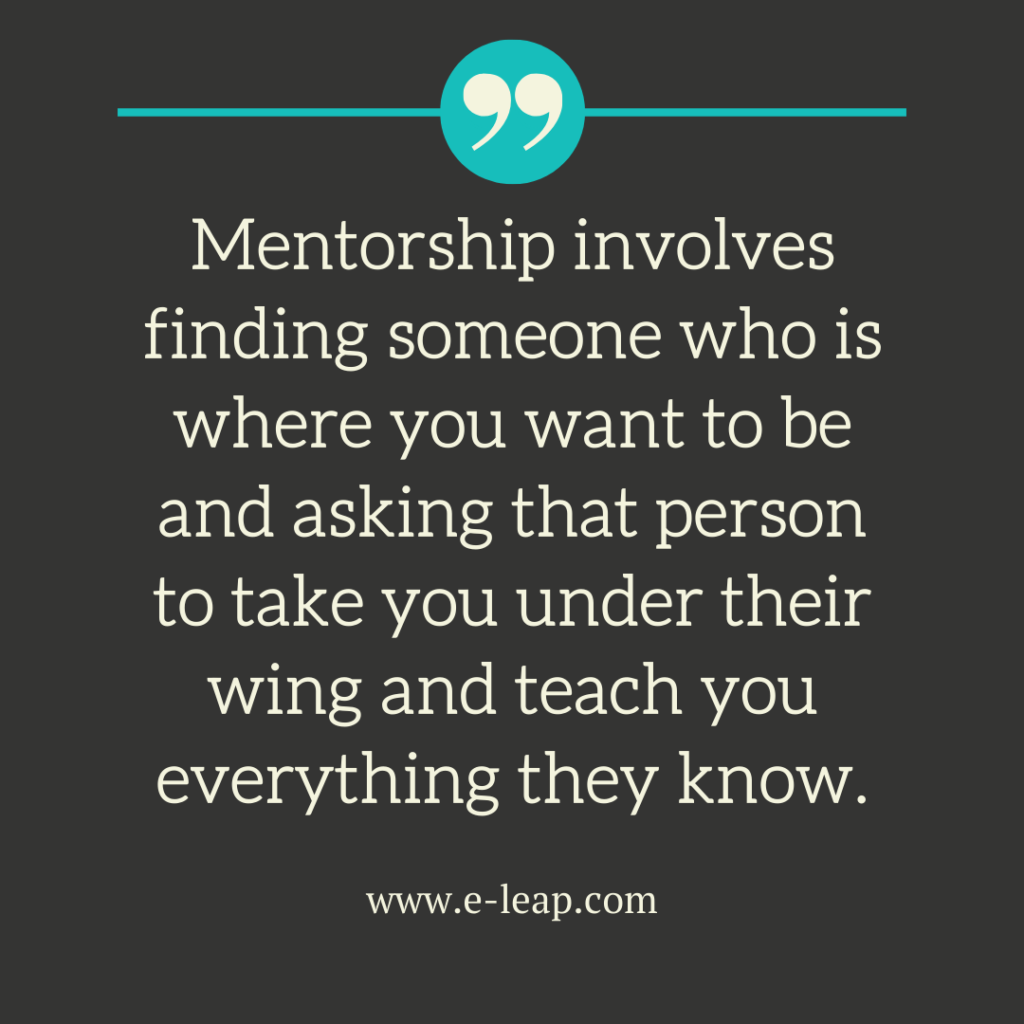In Entrepreneurial Leap, I share my experience with my two mentors: my dad, Floyd Wickman, and Sam Cupp, two very successful entrepreneurs. My mentoring relationship with my dad, which changed my life, was very informal. My relationship with Sam Cupp was much more structured.
I met with Sam for an hour and a half every other month for four years. I would share all my ideas and issues, and he would impart his wisdom and perspectives. I remember feeling so excited and nervous going to those meetings at his office. He continued to mentor me less formally for another 10 years, until his sudden passing in his early 60s while playing ice hockey, one of his passions. I miss him greatly. He put a huge dent in the universe.
A mentor is an experienced and trusted adviser, counselor, or guide. Mentorship involves finding someone who is where you want to be and asking that person to take you under their wing and teach you everything they know.
If you want to be a successful entrepreneur and build a $10 million software development company, imagine how you would increase your odds of success and speed up your path if the founder of a $10 million software-development company was willing to become a trusted guide. They know about all of the mistakes you’re about to make and can help you dodge them, shaving years off your learning curve.

How Do You Find a Mentor?
First, think about what you want to build as an entrepreneur. Then determine the type of person who is where you want to be. This potential mentor doesn’t always have to be an entrepreneur in exactly the same business. You have to consider that competition might be an issue in such cases, and a potential mentor who would be a direct competitor might resist the idea of teaching you trade secrets. You might find someone who is in the same industry with a different sized business.
You may already know who you want as a mentor. It might be someone you admire. Please make sure you have multiple candidates because you may hear some “nos.” These are very busy people. Their refusal isn’t a reflection of you. Once you’ve identified your candidates, the second step is to reach out and schedule the first meeting. In that meeting, share your story, ask them to share their story, and passionately ask for what you want from them: to mentor you.
Again, you may hear some “nos.” Once you get a “yes,” the next step is to agree on a format. Sam and I met every other month for 90 minutes. You might meet your mentor weekly, monthly, or quarterly. Every relationship is unique.
Apprenticeship: An Overlooked, Undervalued Step on the Path
For thousands of years, masters of their craft would take apprentices under their wing and teach everything they knew. Protégés would learn at the feet of their masters and, when ready, go out on their own. Many apprentices became better and more successful than their masters.
Today you can find apprenticeship programs for plumbers, carpenters, masons, and steelworkers. Why not for entrepreneurs? While there isn’t a formal entrepreneurial apprenticeship program (yet), you can create your own—simply by finding a mentor.
Although having a mentor has many advantages and benefits, you should realize that you can still become successful without a mentor. In my interviews with successful entrepreneurs, I discovered that more than half had mentors when they were starting out. Those who didn’t still found success. However, speaking from experience, I believe success will be escalated with a mentor.
Don’t be discouraged if you can’t find a mentor right now. Sometimes you have to do some looking around for the right person. Also, finding a mentor at this time might not feel right to you, and that’s okay too.
Please take a few minutes right now to list three people who would be a great mentor for you and how to connect with them (LinkedIn, through friends or family, or just call them).






